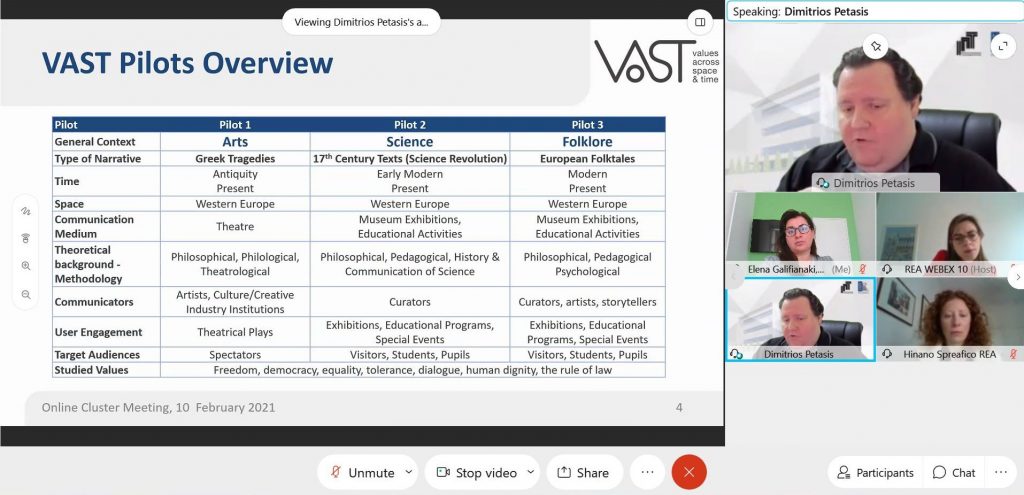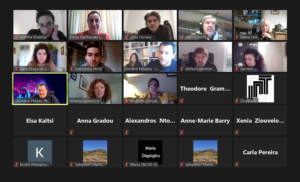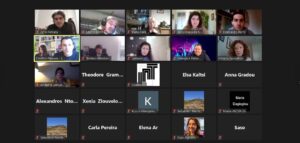Athens, 11 February 2021
PRESS RELEASE
An international team of researchers sets out to study the transformation of the
fundamental moral values of the European Union across space and time.
NCSR Demokritos in Greece leads the recently launched VAST Project.
In December 2020, a new H2020 European research project named VAST was kicked off by the Institute of Informatics and Telecommunications at NCSR Demokritos. The acronym VAST stands for Values Across Space and Time and aims to study the transformation of moral values across space and time. An emphasis will be placed in those core European values considered fundamental for the formation of sustainable communities and enabling citizens to live well together, such as freedom, democracy, equality, tolerance, dialogue, human dignity, the rule of law and others.
The VAST project is an international collaboration between eight partners from five countries: the National Center for Scientific Research Demokritos (Greece), Università degli Studi di Milano (Italy), National and Kapodistrian University of Athens (Greece), Universidade NOVA de Lisboa – NOVA (Portugal), Fairytale Museum (Cyprus), Semantika (Slovenia), Museo Galileo (Italy) and the Athens & Epidaurus Festival (Greece).
The project envisions to bring European values to the forefront by using cutting edge technologies to create a digital platform and a knowledge base which will include narratives from three areas: theater (focusing on ancient Greek Drama), science (focusing on Scientific Revolution and natural-philosophy documents of the 17th century) and folklore (focusing on folktales/fairytales). Through advanced techniques and digital tools, researchers will study how the meaning of specific values has been expressed, transformed, and appropriated through time, going back to the stories that helped shape part of the European culture. VAST will examine narratives and user experiences that represent significant moments of European culture and history such as the classical period, and the Scientific Revolution of the 17th century, when the conceptual, methodological and institutional foundations of modern science were first established, to the modern era.
Going beyond analysing the transformation of moral values in the past, the VAST project will study how moral values are communicated and perceived today, by collecting, digitising and analysing narratives and experiences of both communicators of moral values (i.e., artists, directors, culture and creative industry institutions, museum curators, storytellers, educators, etc.) and the respective audiences like spectators, museum visitors, students, pupils, etc.
To track European values through space and time, to enable the comprehensive understanding of the evolution of these values, and to study how these values are appropriated by audiences, partners will be employing methodologies and tools such as content analysis, interviews, questionnaires and other material found in press or online, theatrical plays, stories and narratives in video, oral or written forms. The community which will provide this content varies from scholars, researchers, and practitioners to a wider audience, such as artists, curators and storytelling experts, spectators, museum visitors, students, as well as the general public. VAST aims to digitise and preserve stories, findings and experiences as intangible assets linked to iconic/significant theatrical reproductions, and museum educational programs and exhibits, consolidating digital artefacts and providing additional context for analysis and semantic evaluation of digital assets and resources of cultural heritage.
This digitisation and preservation of the European cultural heritage, enhances the understanding of our cultural history, a key driver for the economic, social, environmental growth and sustainable development.
Notes to Editors
- The project logo and the banners can be found here for your use.
- For more information contact us: Elena Galifianaki, Communications, NCSR Demokritos, egalif [at] iit.demokritos.gr
- Follow us online:
Facebook: https://www.facebook.com/VAST-H2020-project-102447878534832
Twitter: https://twitter.com/projectVAST
The press release is available in Εnglish, Greek, Portuguese, Italian, Slovenian.
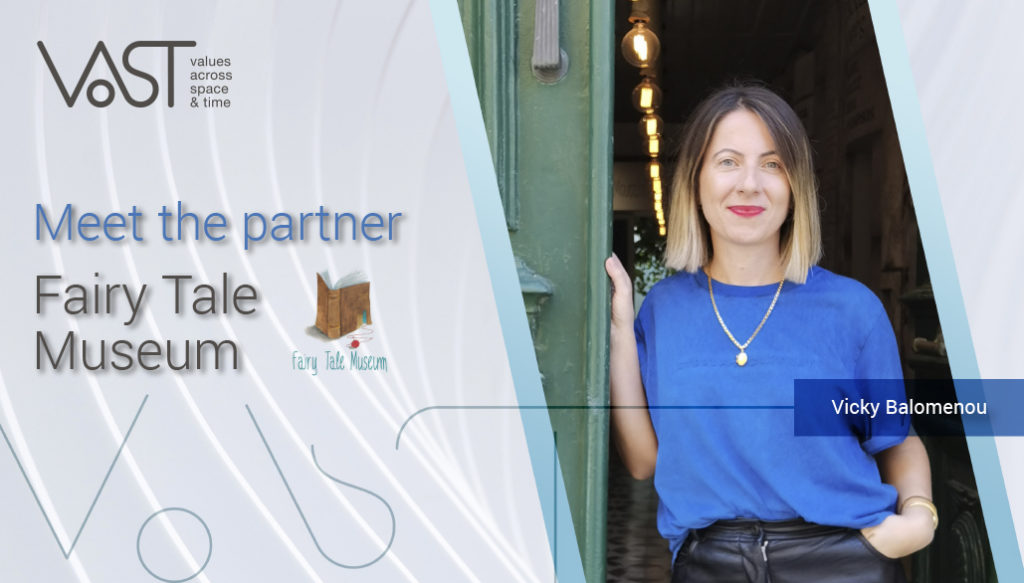
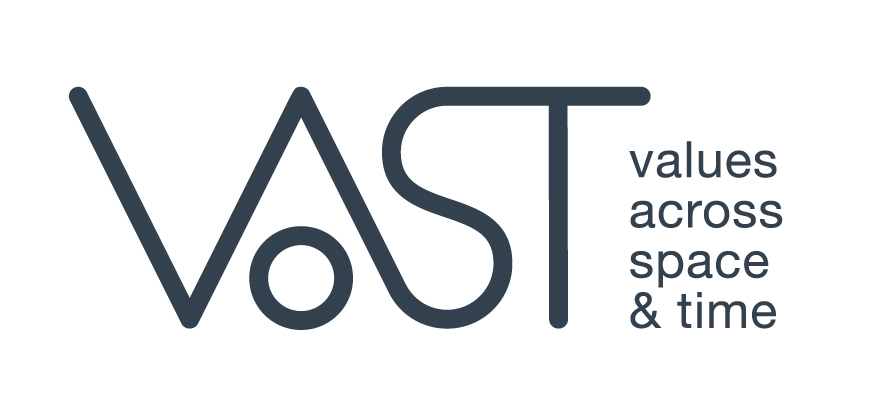
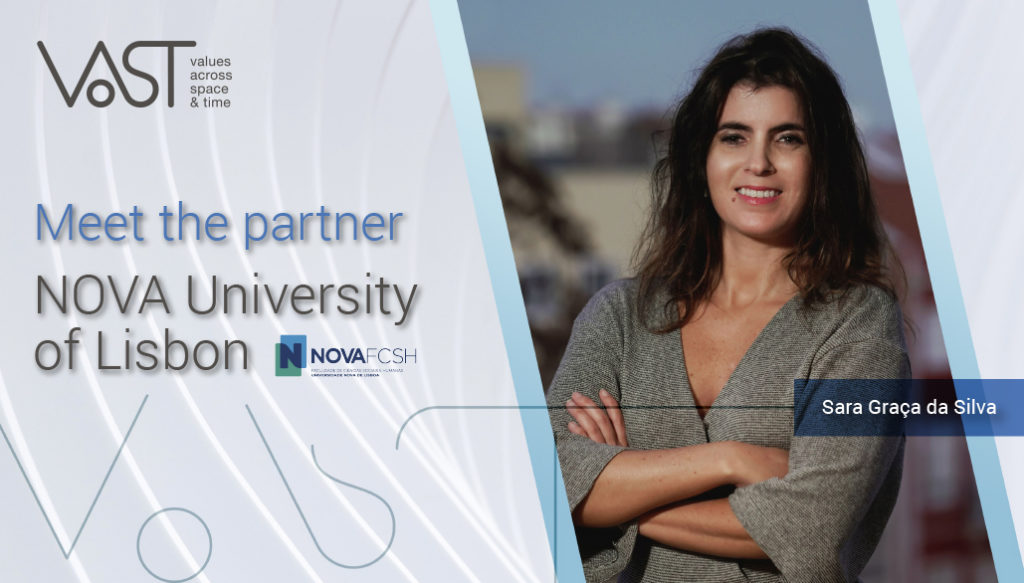
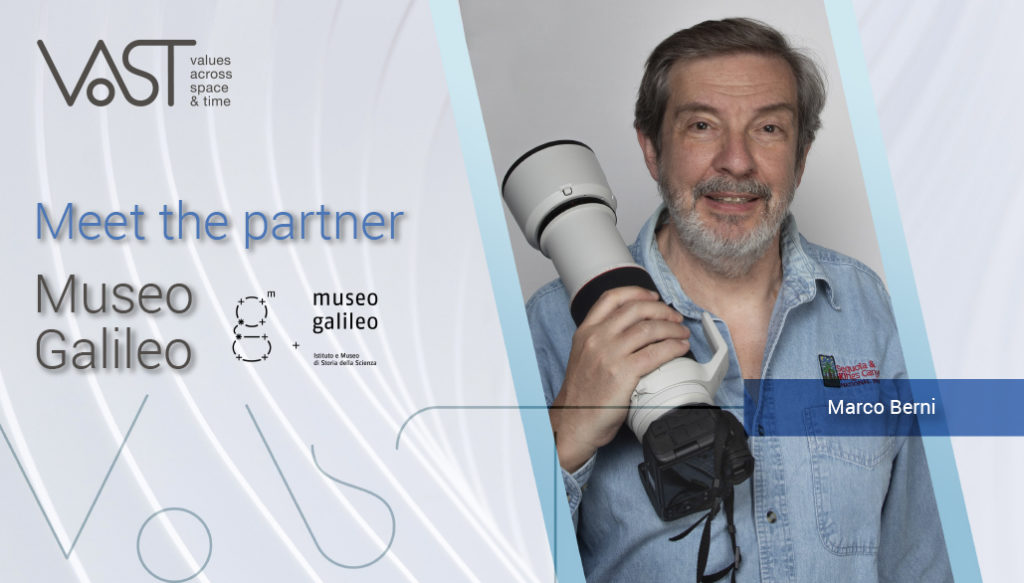
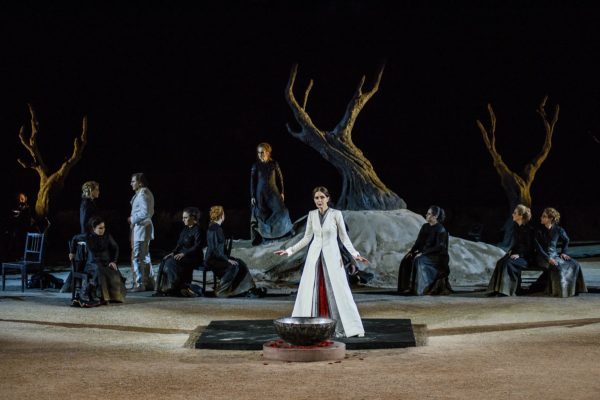
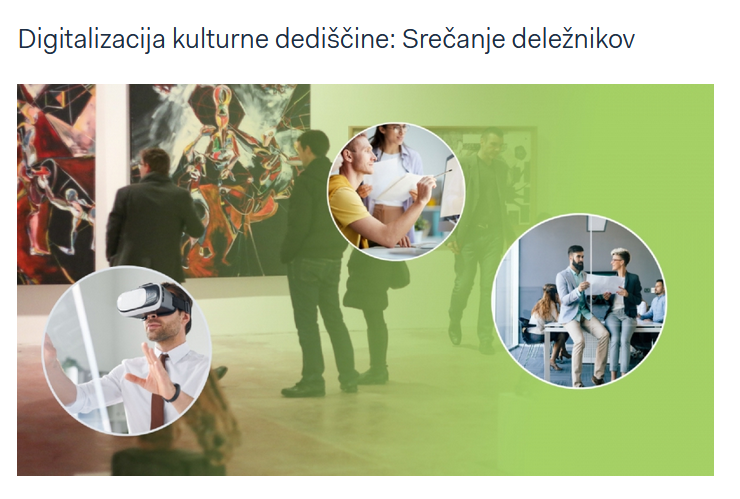
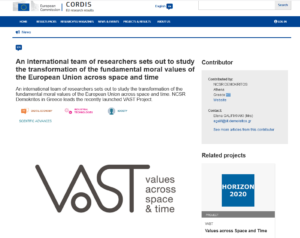
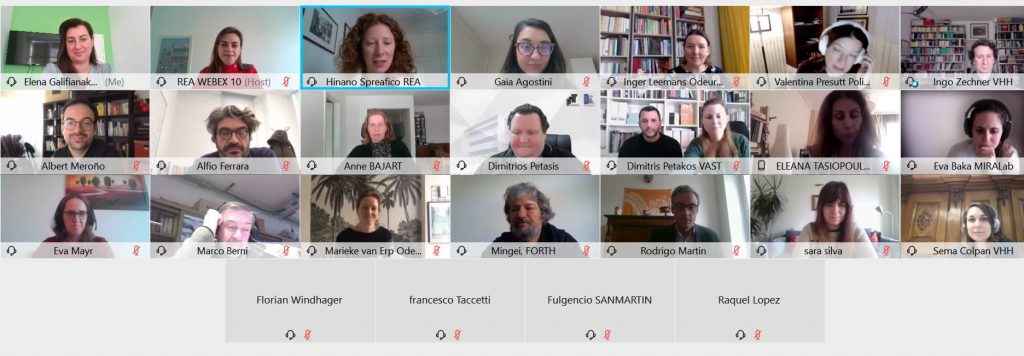 Capture from the first cluster meeting of the sibling projects under the DT TRANSFORMATIONS-12 topic.
Capture from the first cluster meeting of the sibling projects under the DT TRANSFORMATIONS-12 topic.